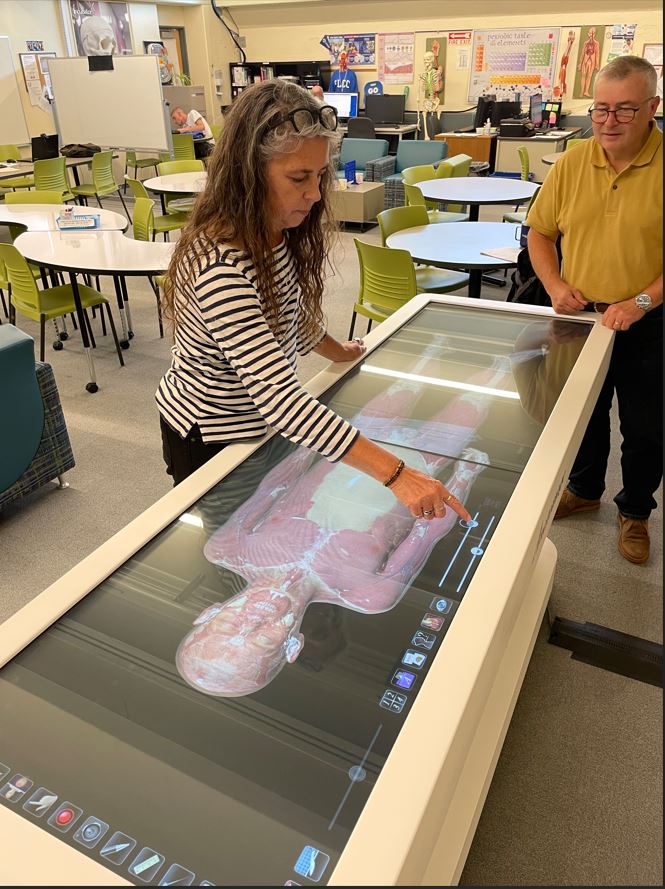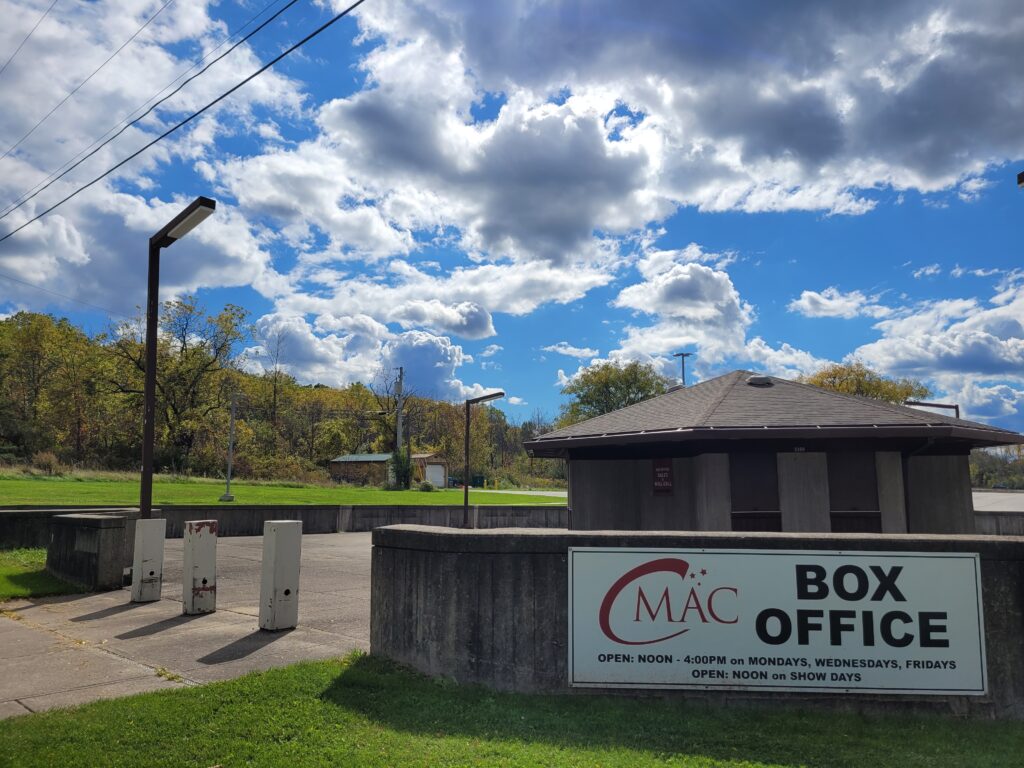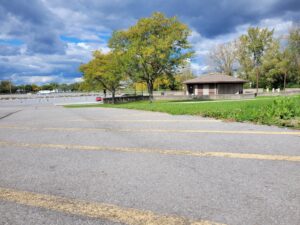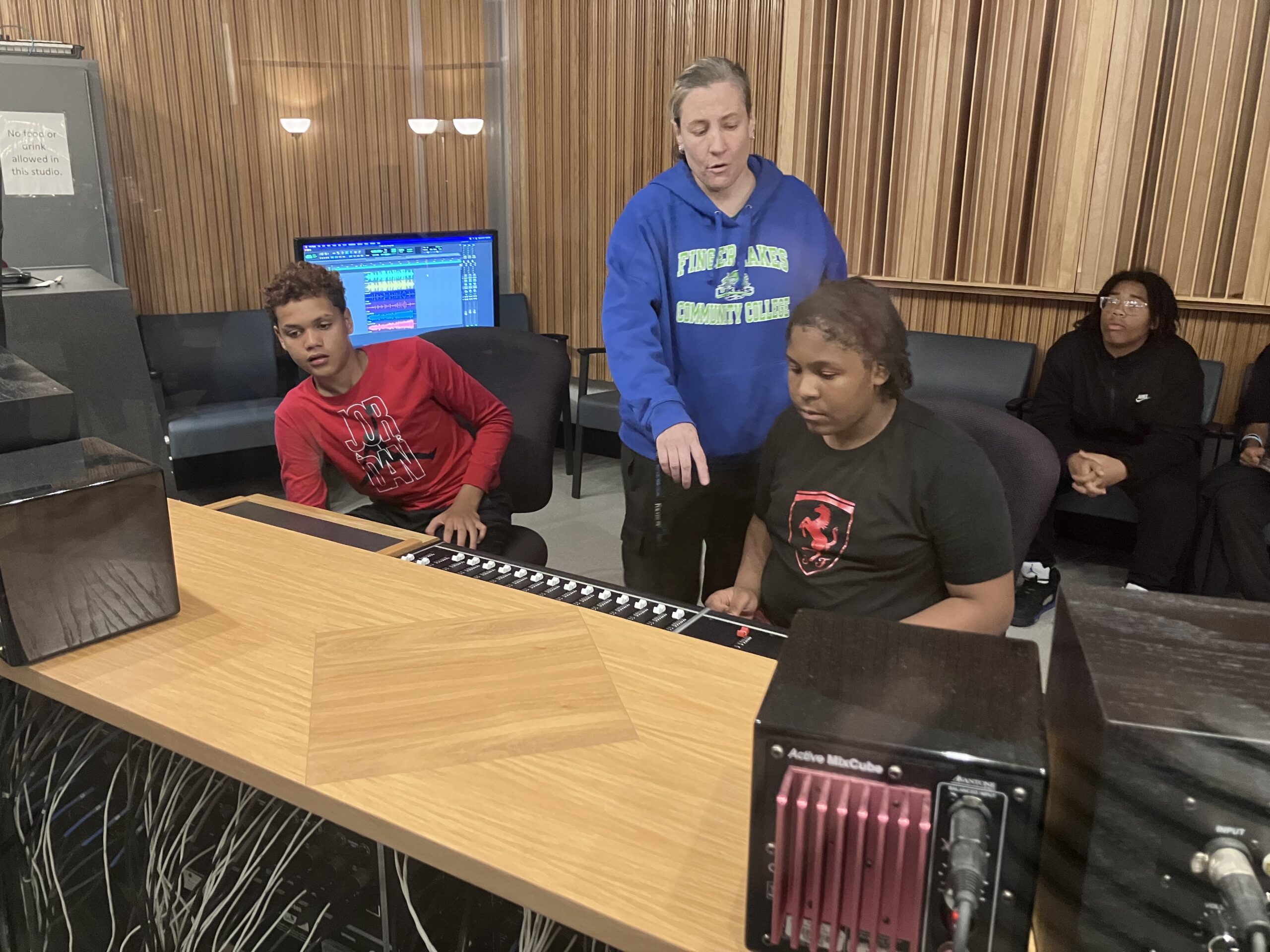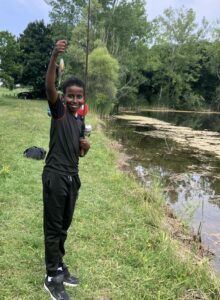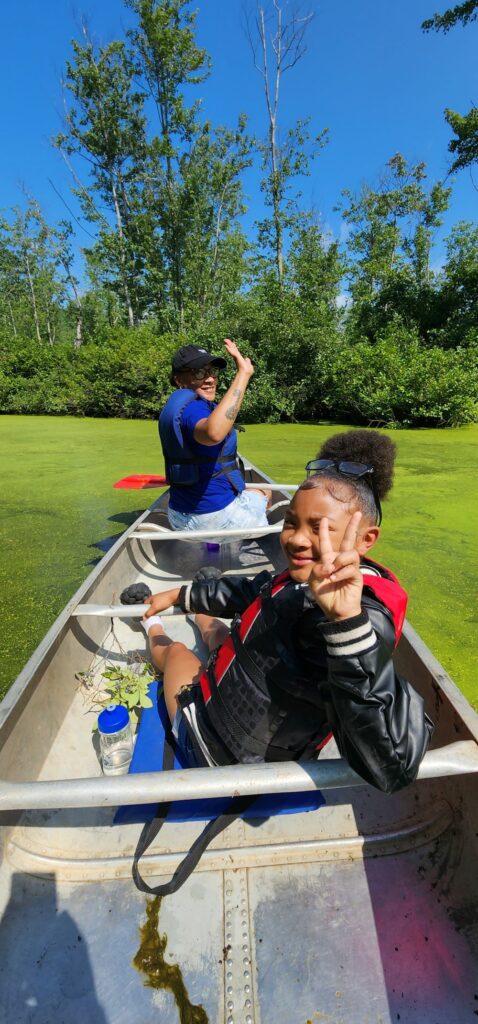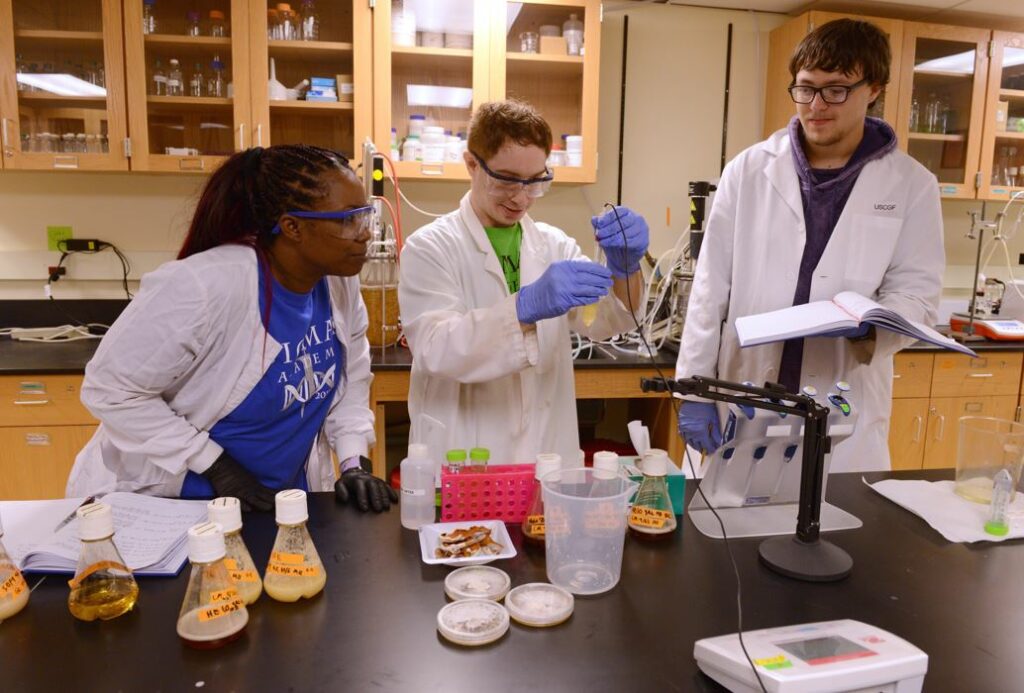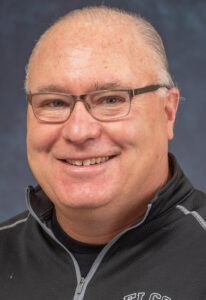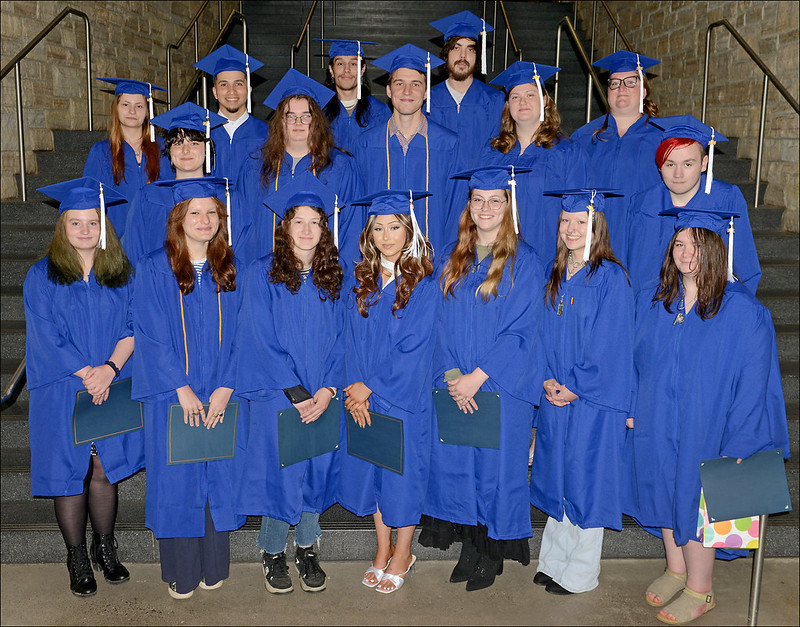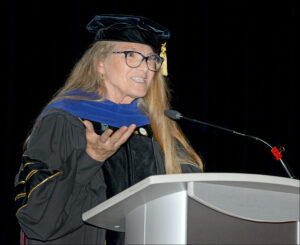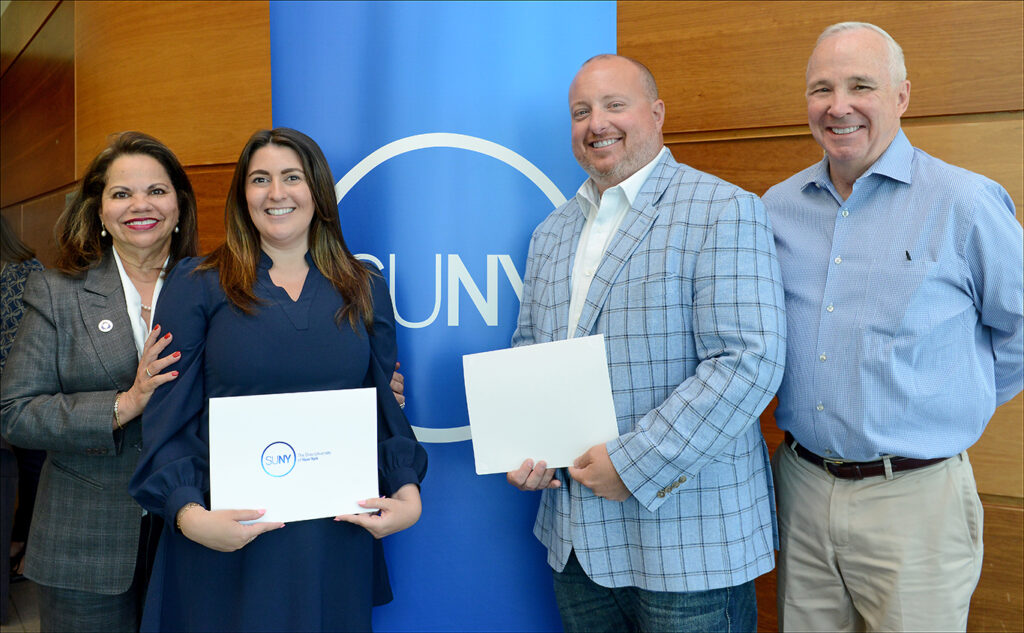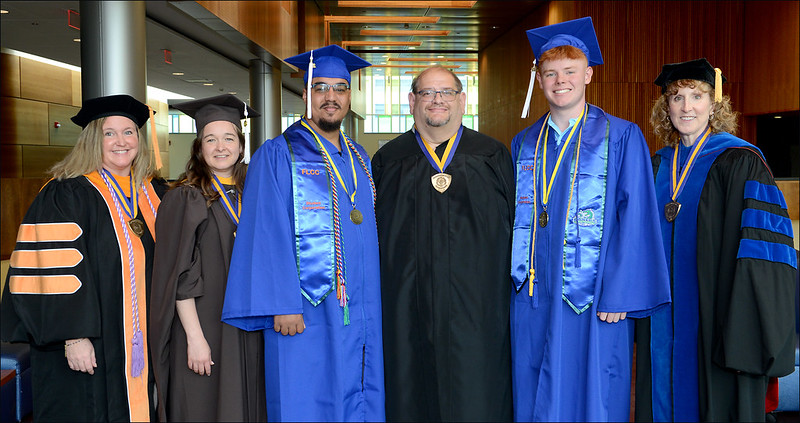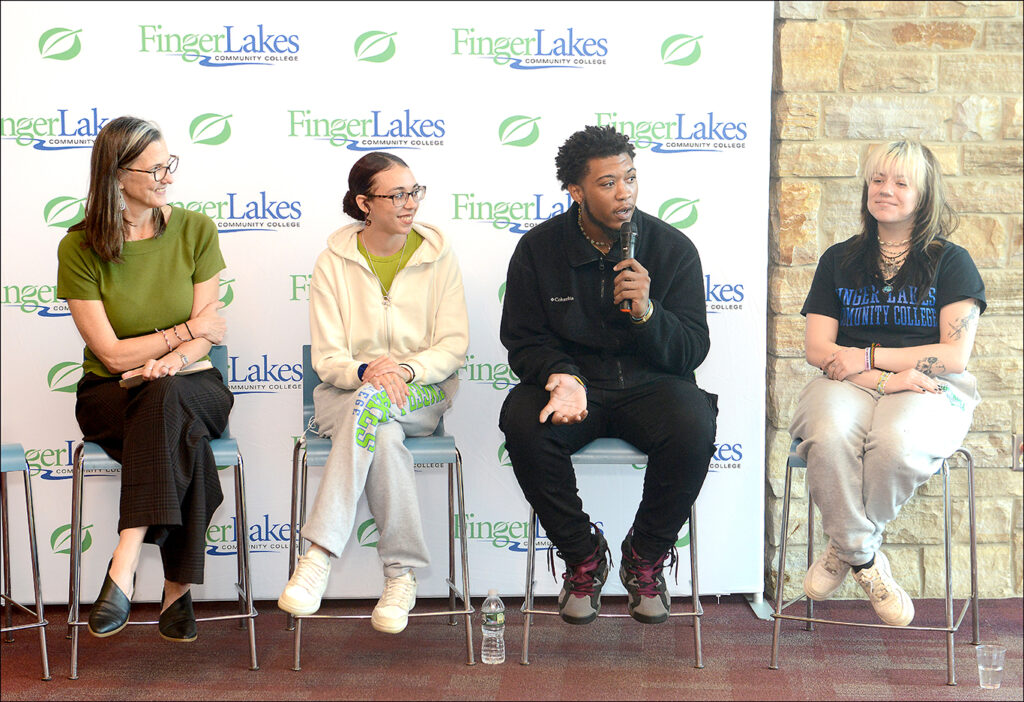
Three Finger Lakes Community College students shared their personal stories on Tuesday (Oct. 15) about the SUNY Advancing Success in Associate Pathways (ASAP) initiative, a two-year model that has been widely demonstrated to increase student completion rates and narrow opportunity gaps.
The program provides financial and coaching support to ensure student academic success, retention, and on-time graduation.
Ariana Halloway, a health care studies major from Elmira, joined the program when it was first introduced in spring 2024. Myles Johnson, a liberal arts major from Rochester, and Ash Bertelsen, a fine arts major from Elmira, learned about the program from Halloway and joined this fall.
Halloway said the financial assistance that comes with the program has helped her pay for groceries and phone bills, easing her worries about how she would go to school and cover basic expenses. Having a single person to turn to for advice has also been key.
“SUNY ASAP is like a navigation system. It’s unique to each student. I love the program.” Holloway added.
Bertelsen agreed: “Just having someone to go talk to – I can talk to them about literally everything.”
She is also grateful for the financial assistance available for educational materials because costs for art supplies for fine arts majors add up quickly.
Johnson said the program has eased the pressure he feels to look after his mother, who is disabled. When he had trouble getting a specific textbook, it was a relief to be able to turn to his coach, Nissa Youngren, for help.
Youngren, also assistant director of the program at FLCC, added, “What we do is try to reduce stress and mitigate obstacles.”
The program provides an array of resources and support, including funding to cover textbooks, groceries, transportation, and other costs of attendance. Students enrolled in the program receive academic assistance, personalized advisement, and career development activities. It is open to full-time students who are eligible to pay New York in-state tuition and meet income eligibility requirements.
“Our goal for any student here is to help you succeed and do great things in life,” FLCC President Robert Nye told the student panelists as he thanked them for sharing their personal stories.
SUNY Chancellor John B. King Jr., who visited the FLCC main campus a few days earlier, issued this statement: “Student success drives everything we do at SUNY, and we are committed to meeting students and their families where they are to ensure they thrive. SUNY takes pride in scaling ASAP as a proven model for student success across our campuses. We look forward to continuing to invest in the next generation of SUNY graduates at Finger Lakes Community College and across the system.”
FLCC is one of 25 SUNY campuses statewide that opted in to the ASAP program or its four-year counterpart, called Advancing Completion through Engagement, or ACE.
A total of 150 students are enrolled in FLCC’s ASAP program.
ASAP and ACE began at the City University of New York (CUNY) in 2007 and expanded to the SUNY system in spring 2024, supported by the $75 million SUNY Transformation Fund and supplemented by private grants. In fall 2024, the SUNY ASAP and ACE programs will enroll a combined 4,200 students.
The ASAP and ACE programs have been proven to significantly improve degree completion rates, particularly for underrepresented students. They have since been replicated at more than 20 colleges in seven states across the nation.
To learn more about SUNY ASAP at FLCC, visit flcc.edu/offices/suny-asap or contact Nissa Youngren at Nissa.Youngren@flcc.edu or (585) 785-1750.


